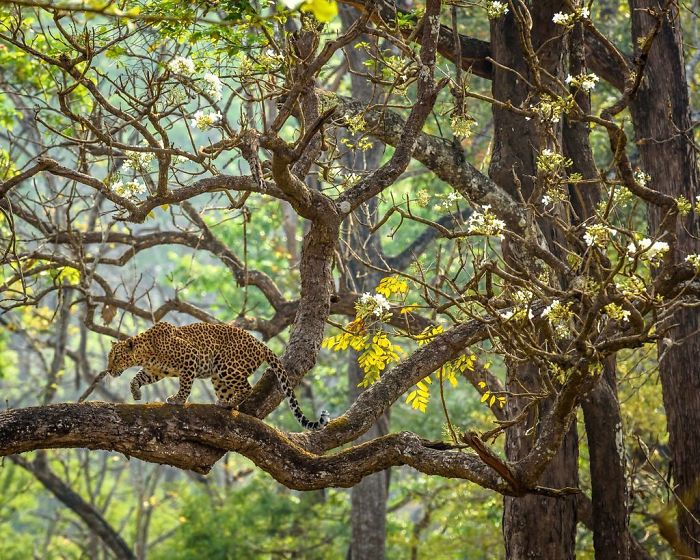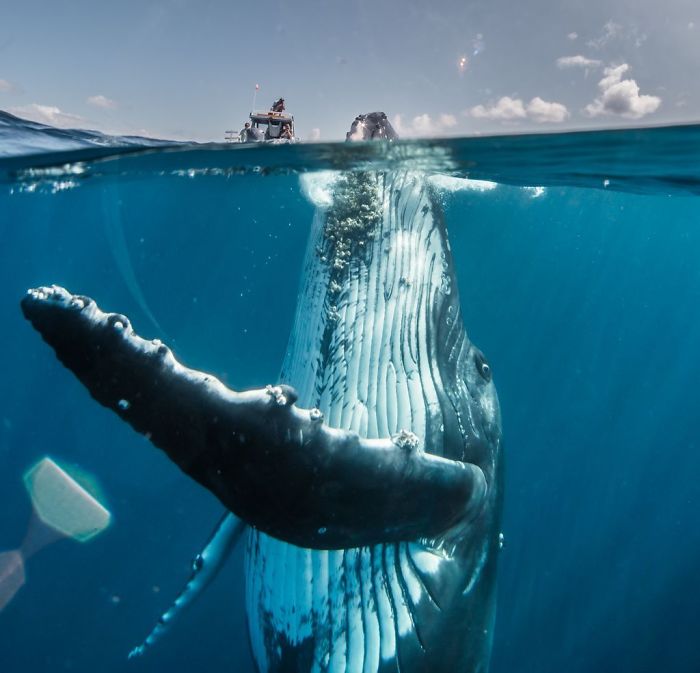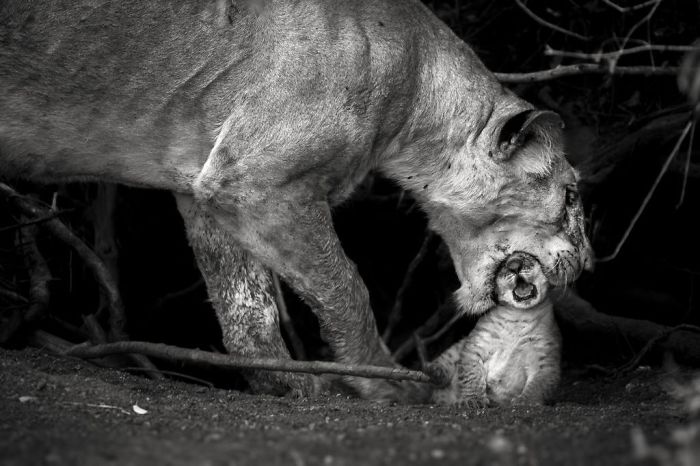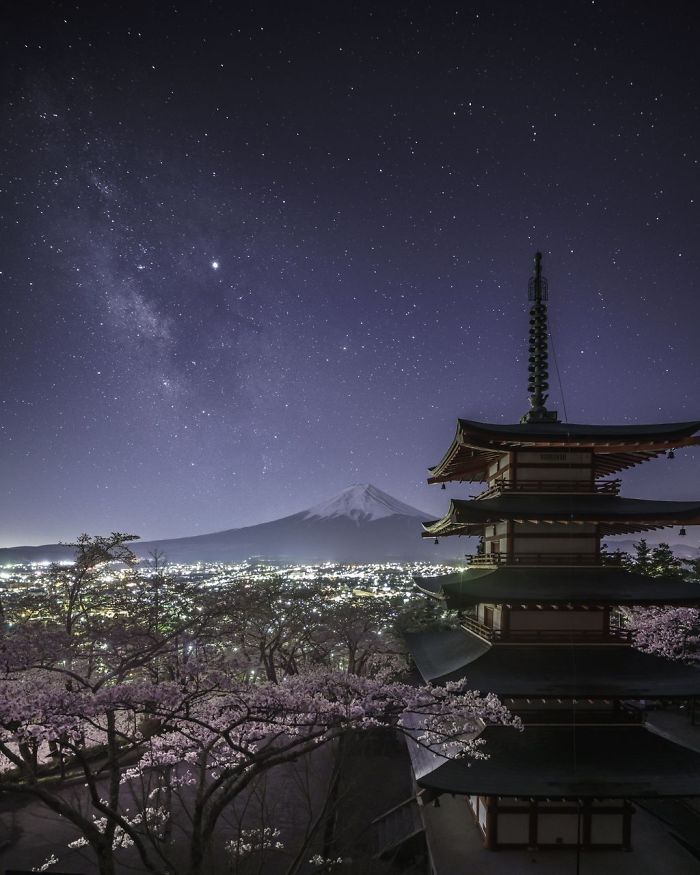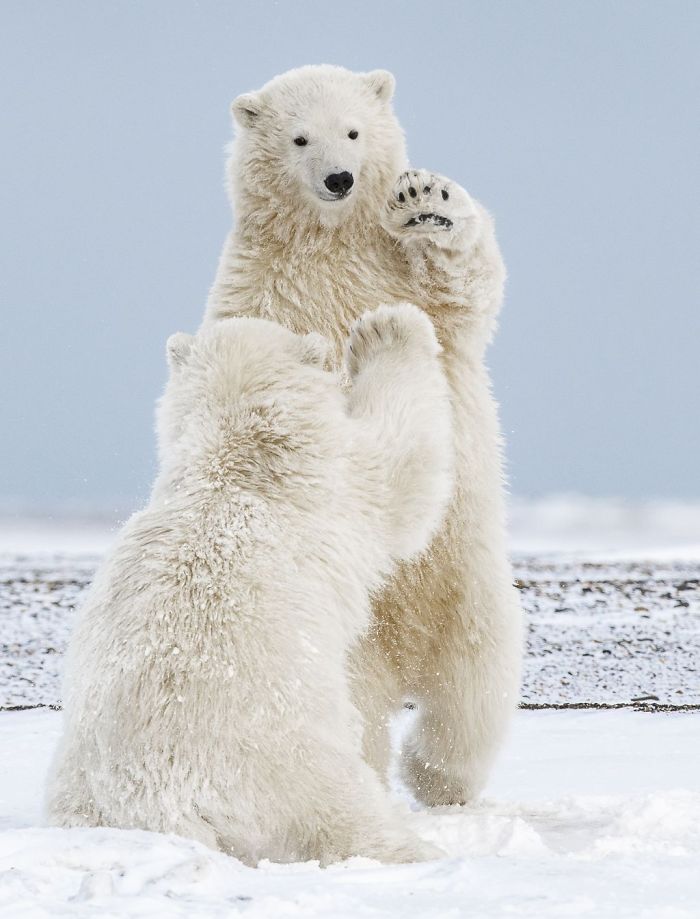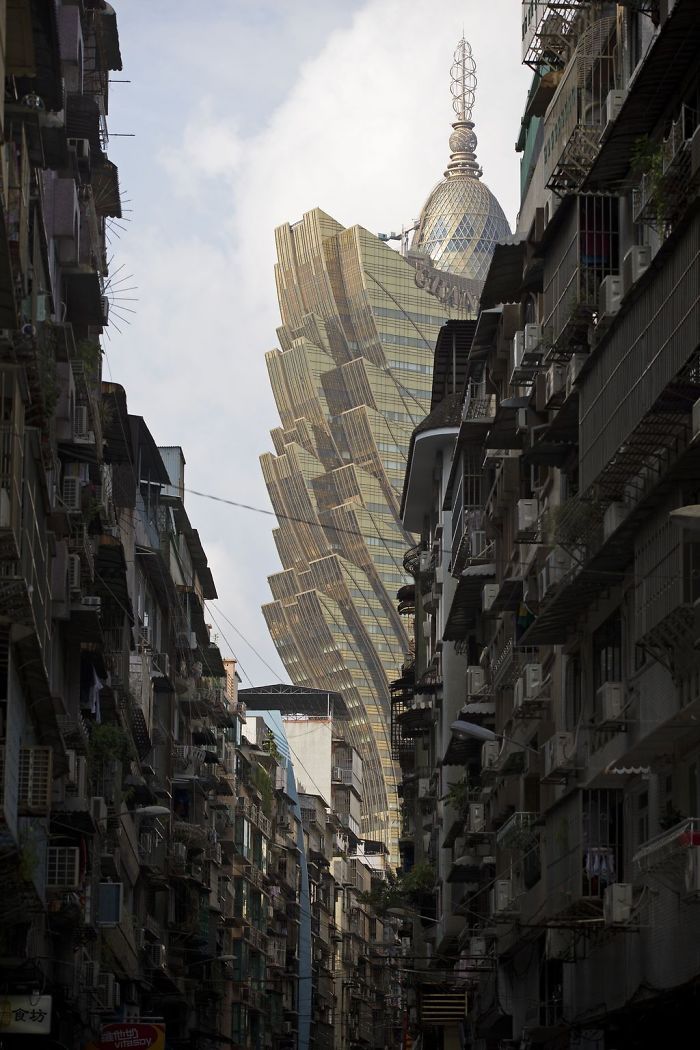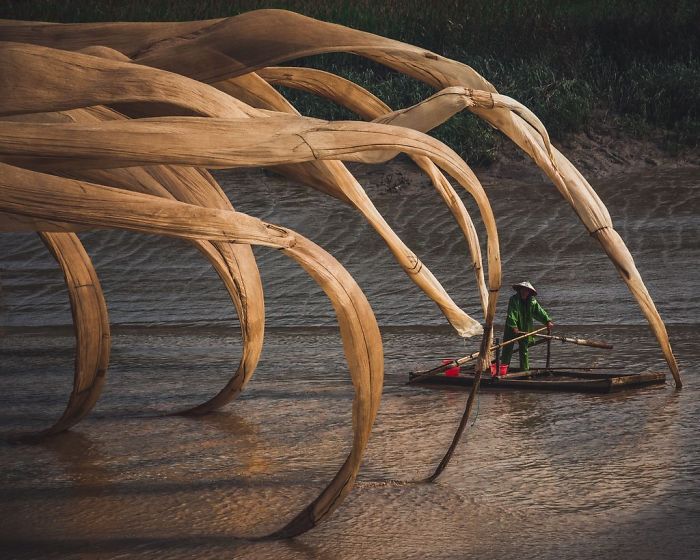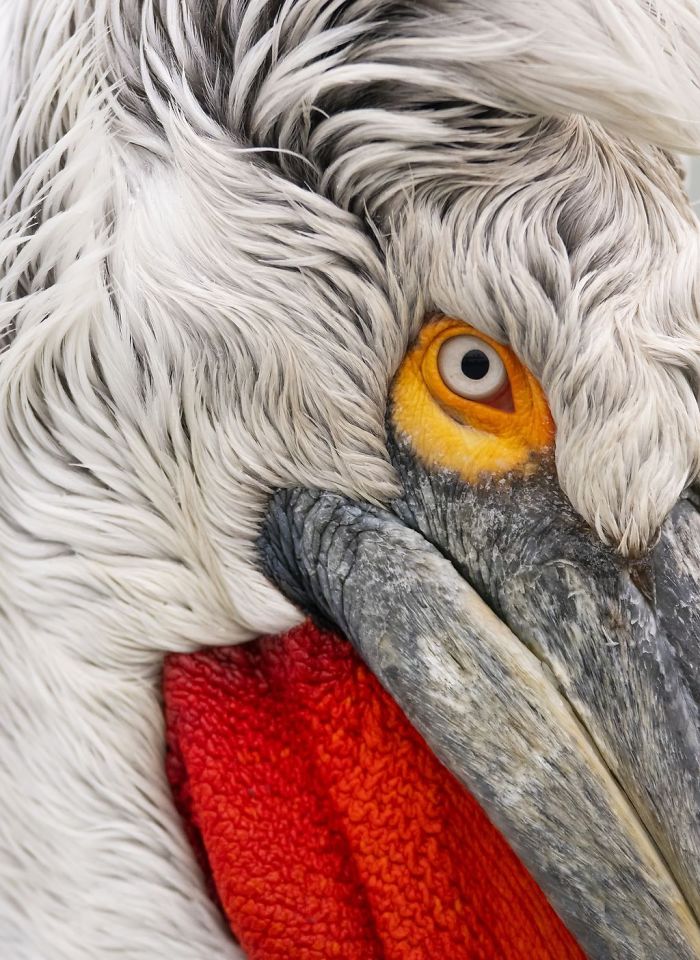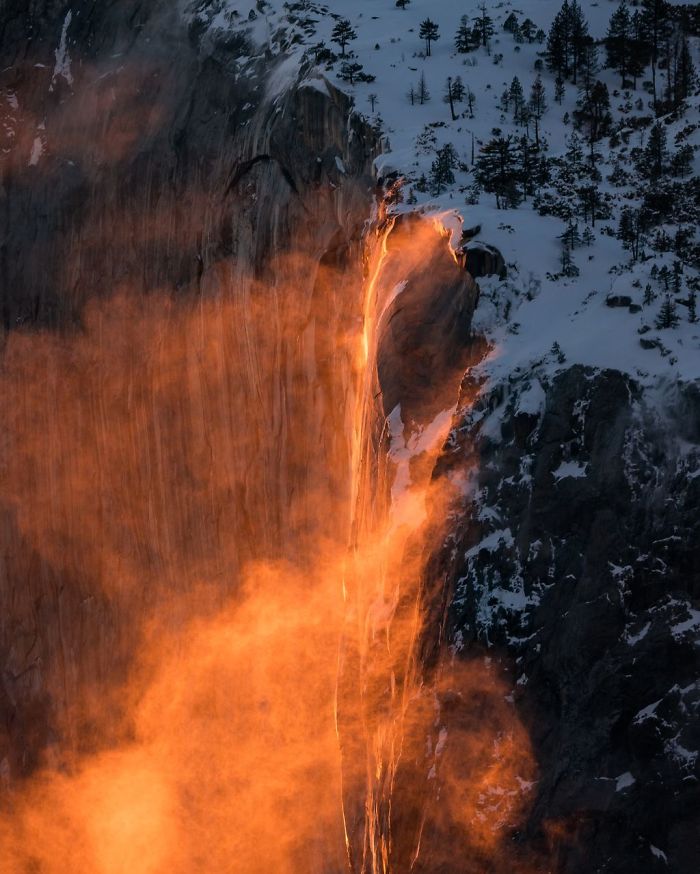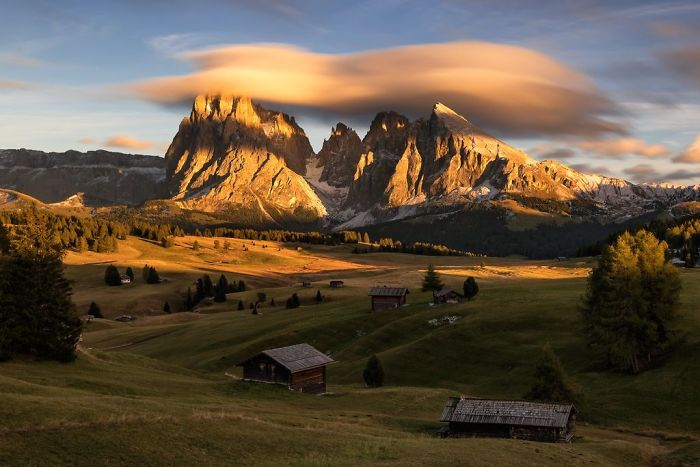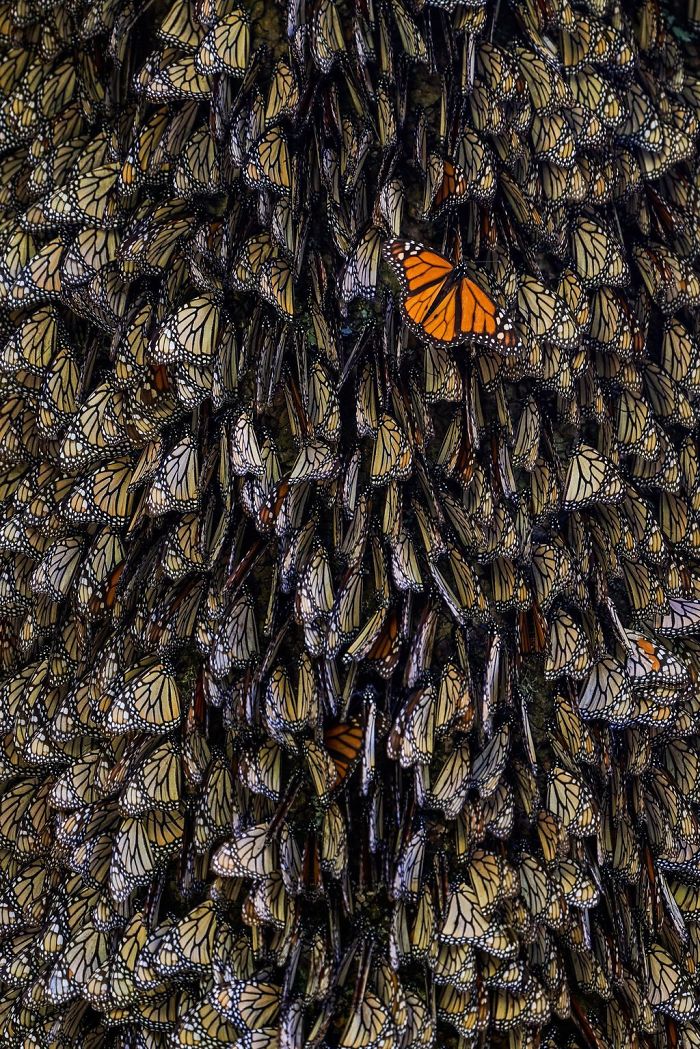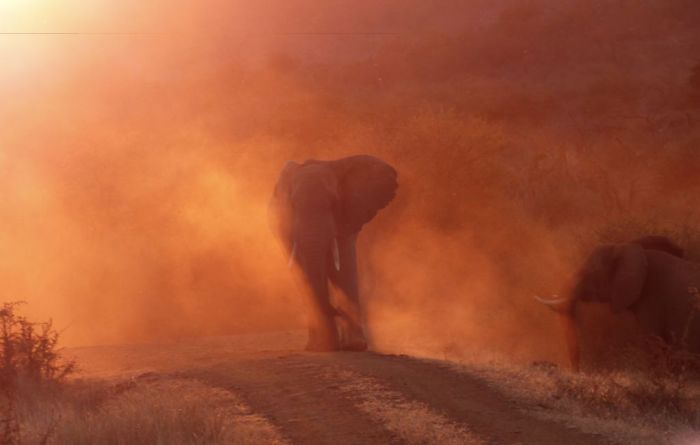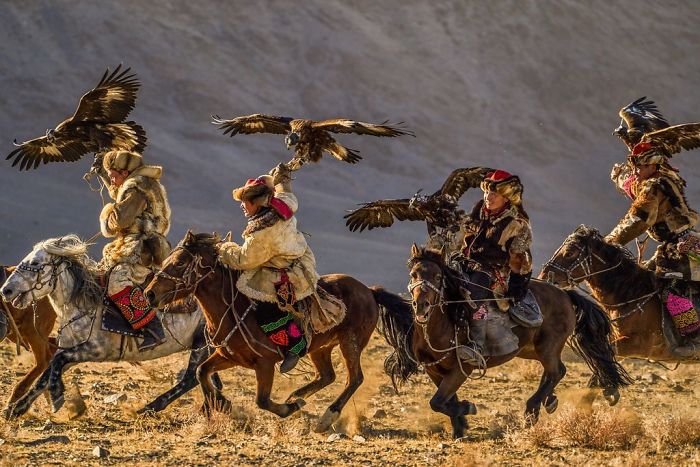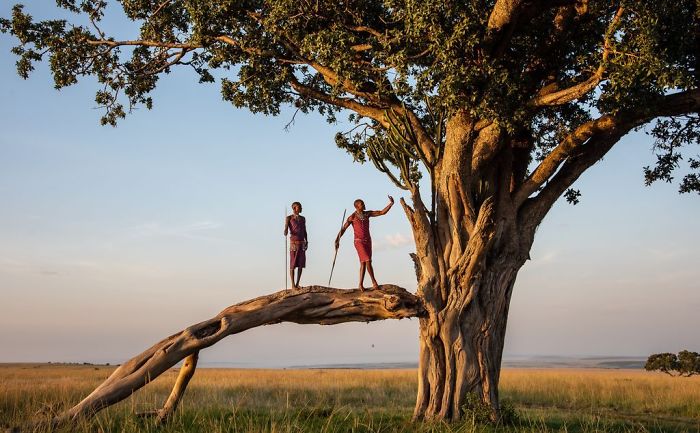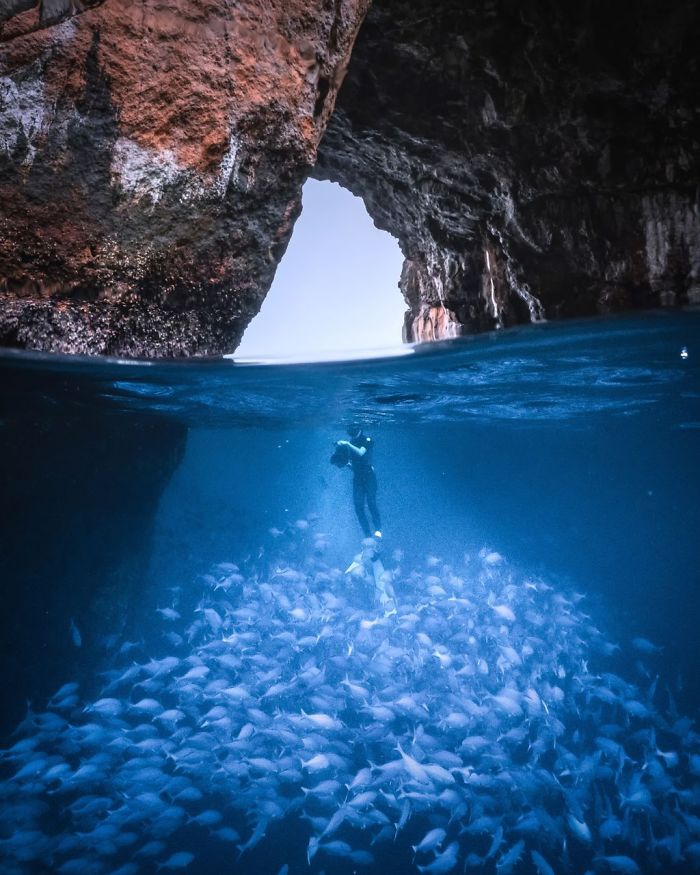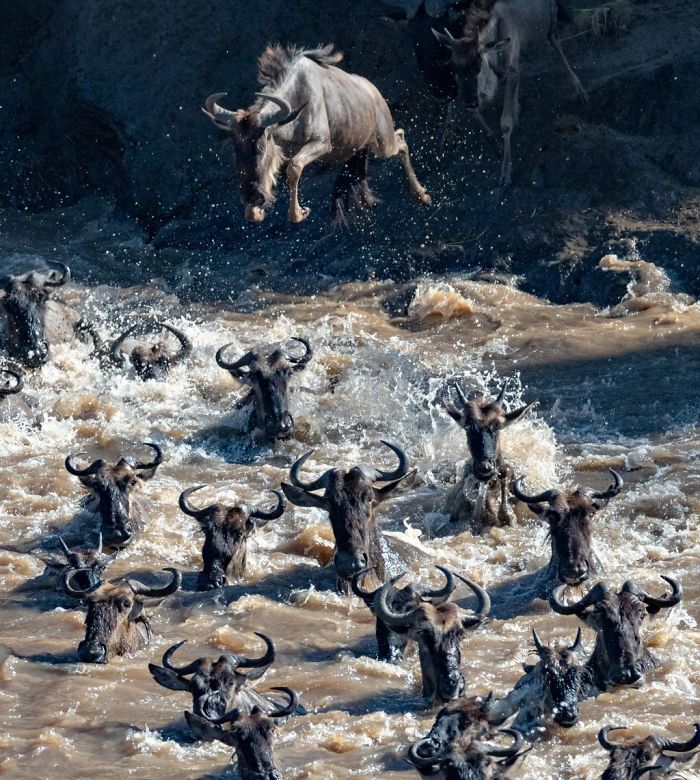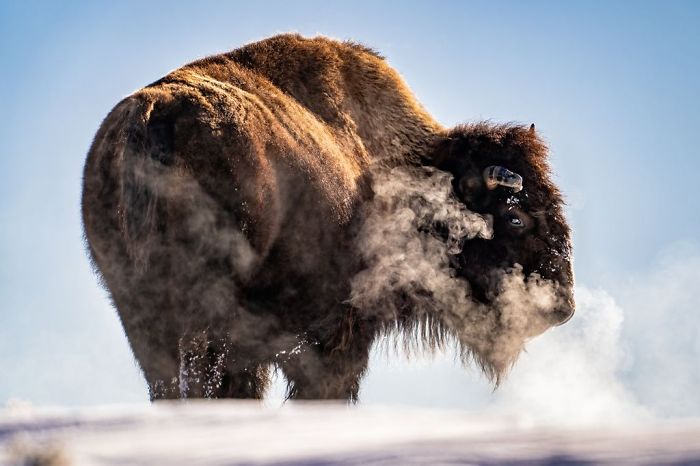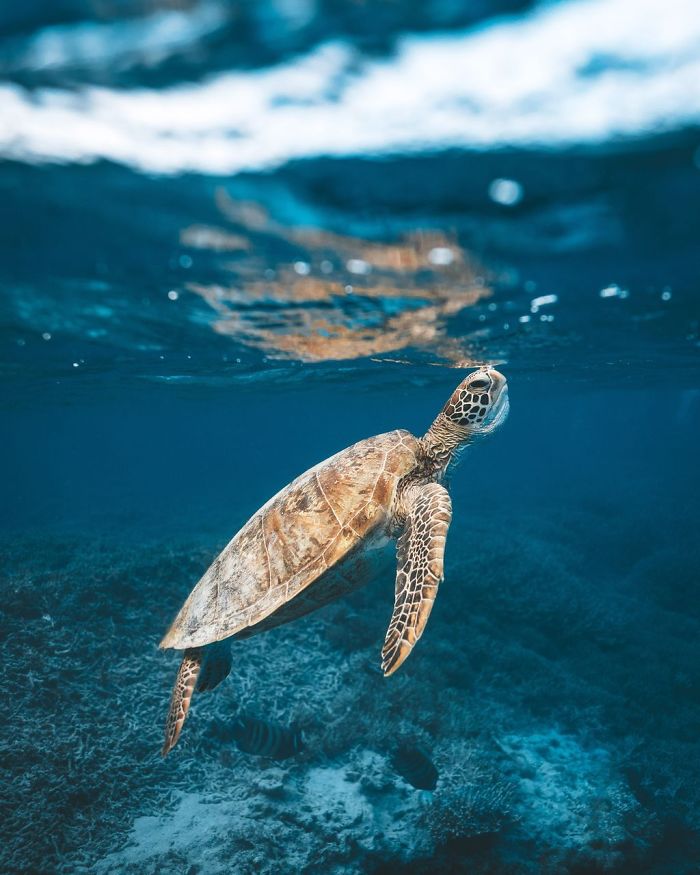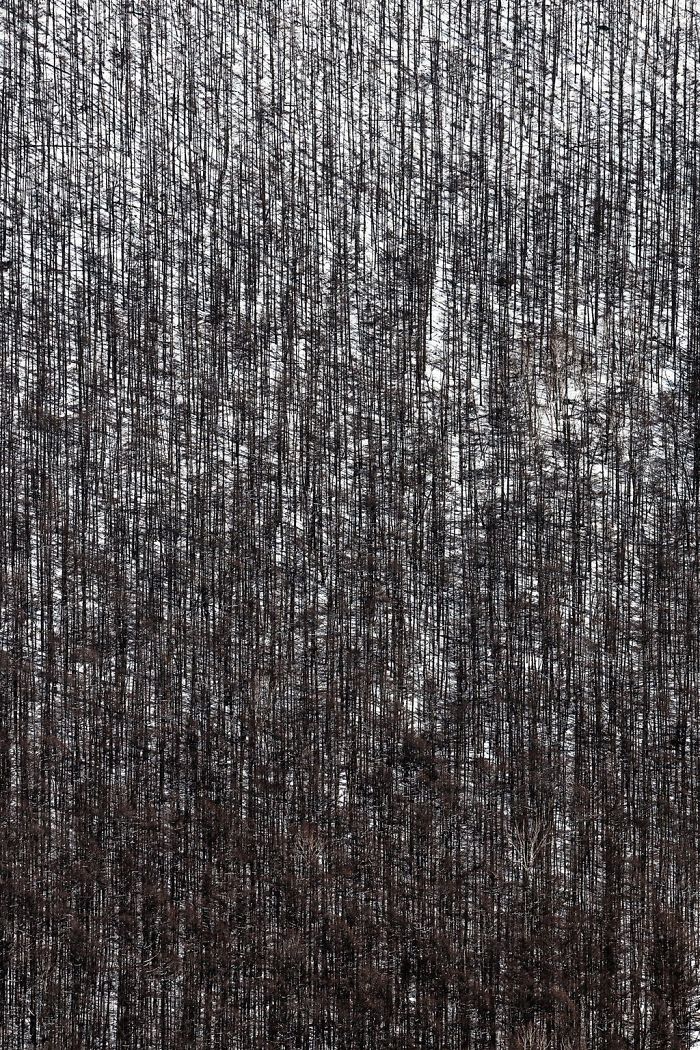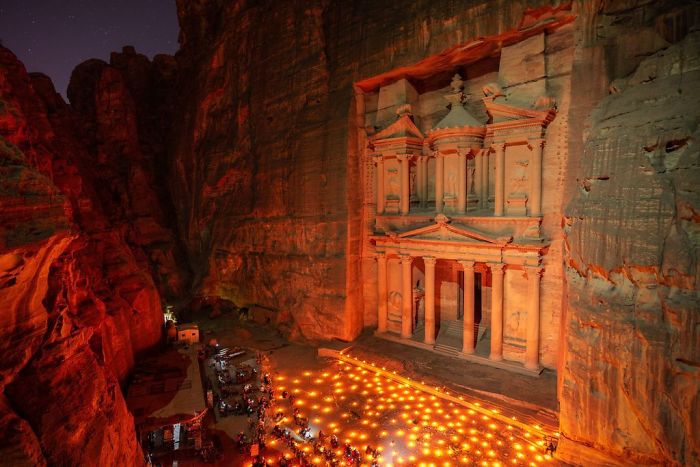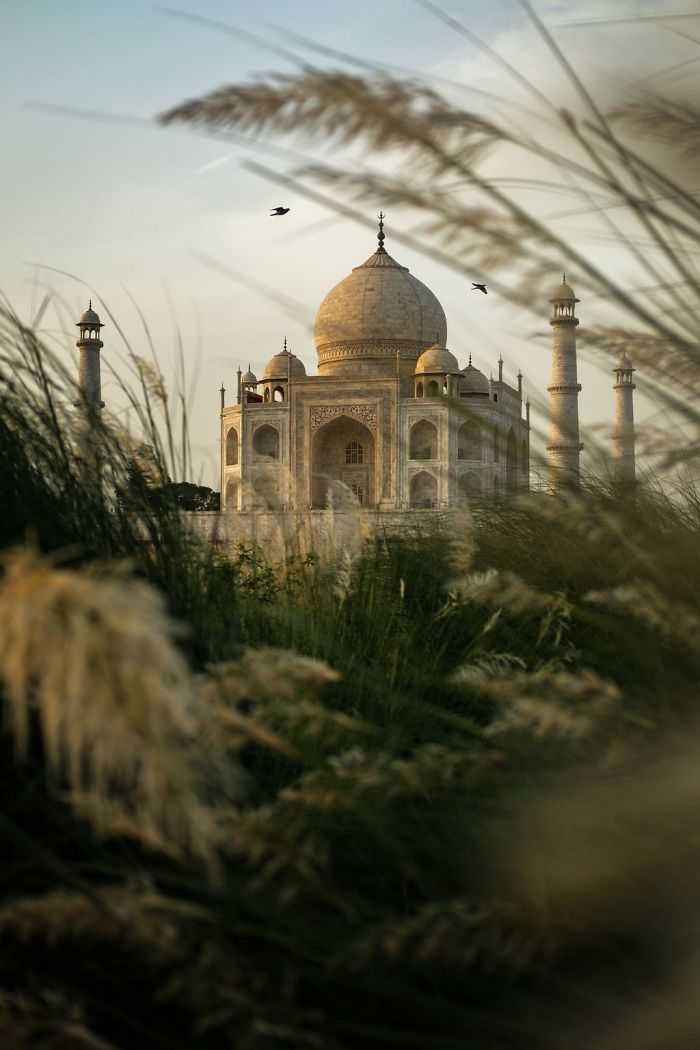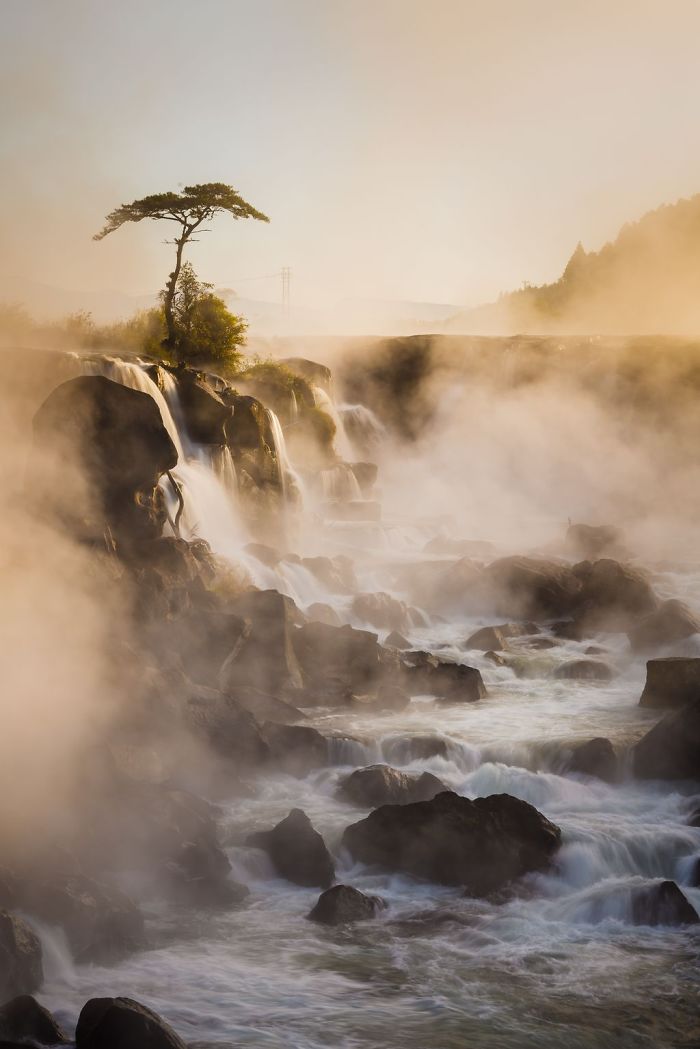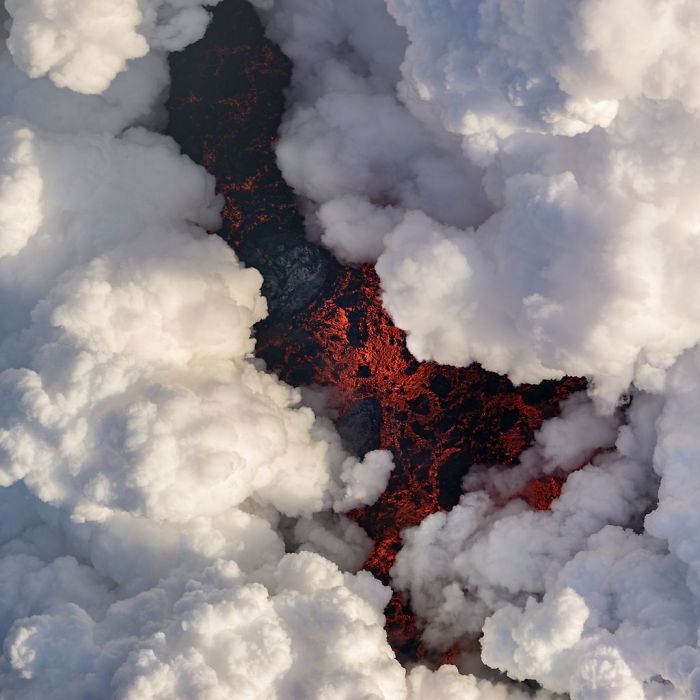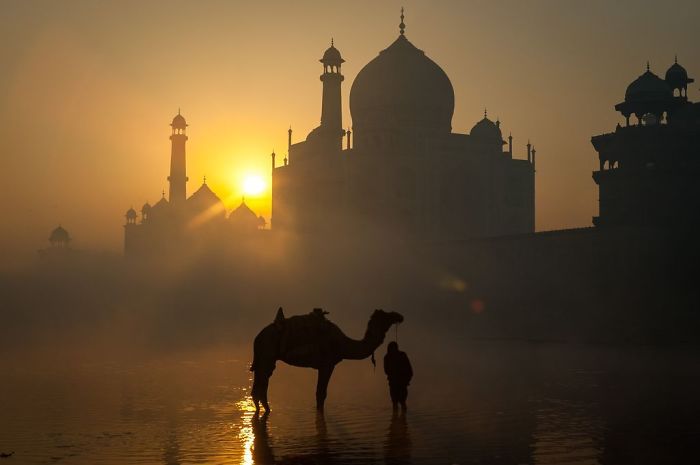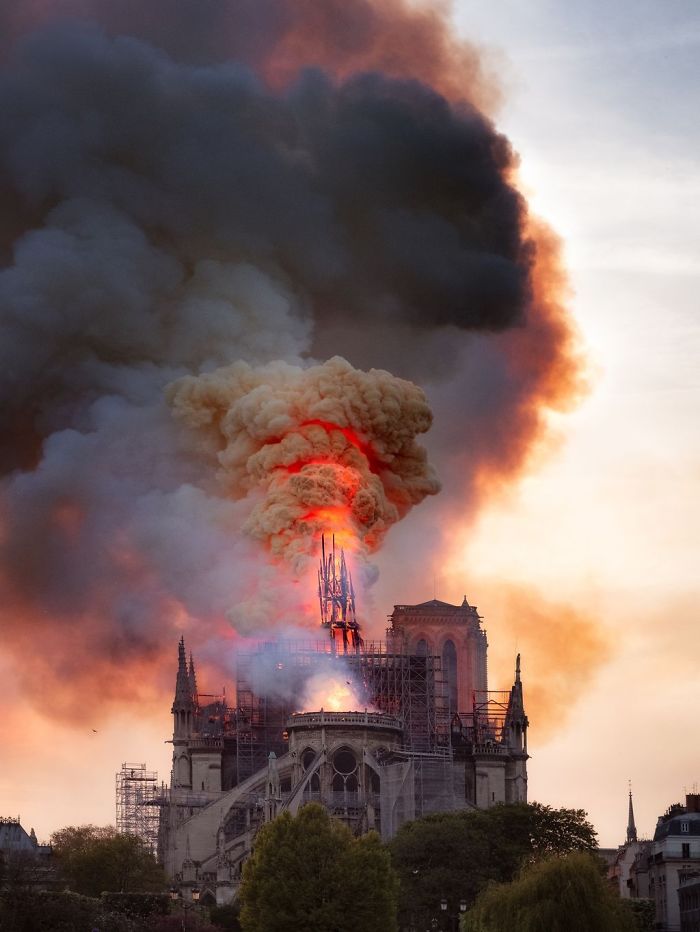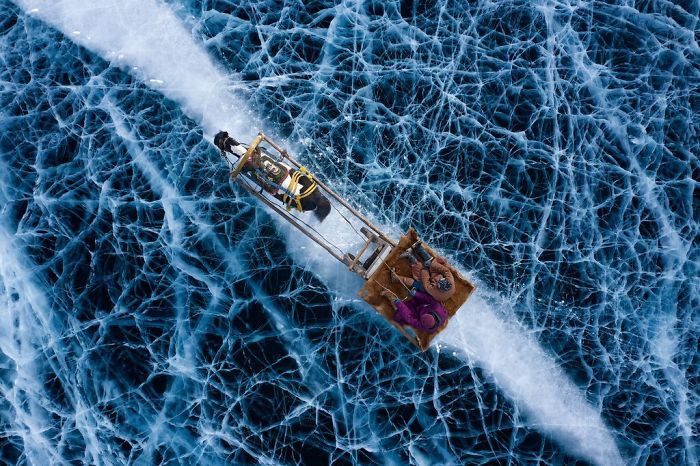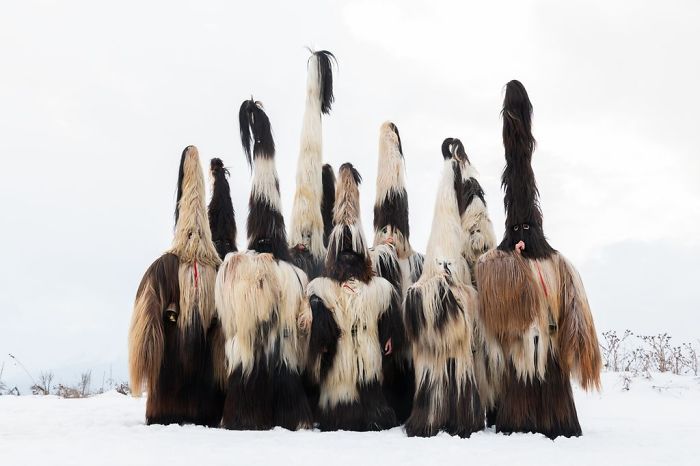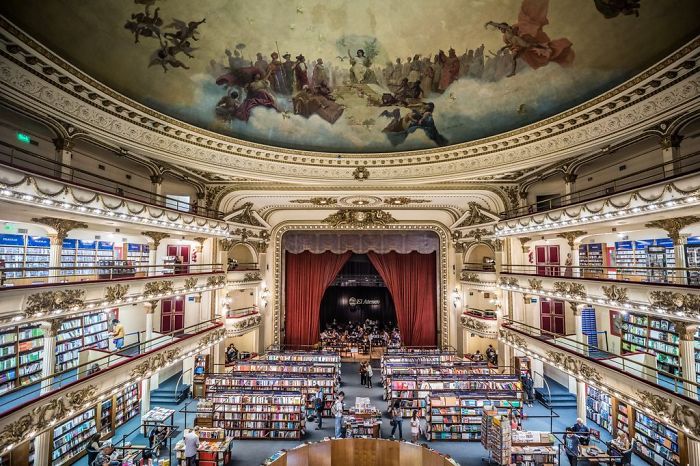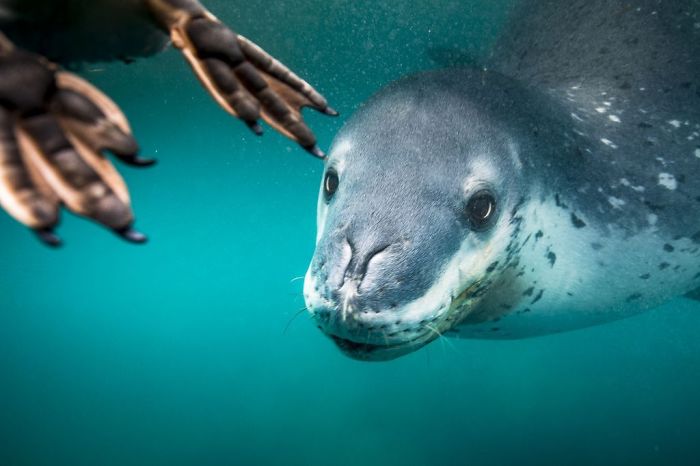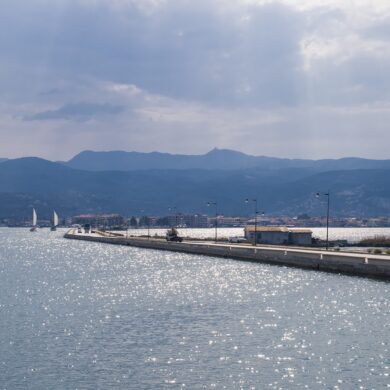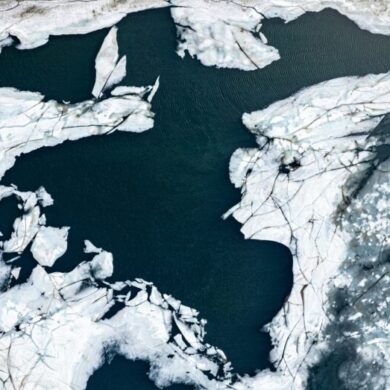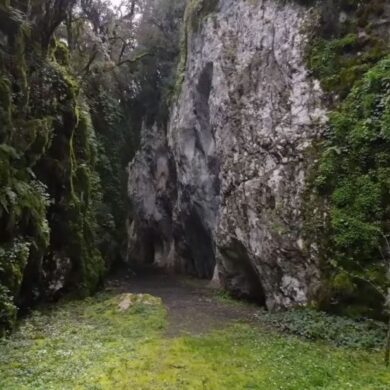Each year National Geographic opens its creative doors to highlight talented photographers from around the world through the National Geographic Travel Photo Contest and similar competitions. The travel photo contest challenges contenders to “help us explore and experience our world through your travels” – and this year’s images rose to the occasion. The entry period for this years contest closed noon ET on May 3 and every submission selected shows breathtaking snapshots of the awe-inspiring world we live in.
Broken down into three categories nature, cities, and people – these images “tell the story of a place, show us the natural world, or share visions of people from around the globe.” Scroll down to see the National Geographic editors’ favorites thus far and experience the world seen through these unique lenses. You can check their site May 13-17 to vote for the People’s Choice winning photos. Final winners will be announced in June.
The grand prize winner will receive $7,500. Their winning image will be featured on the @natgeotravel Instagram account. Individual category prizes include: First place winners will receive $2,500, second place winners will receive $1,500, third place winners will receive $750.
#1 Tip Of The Iceberg, David Edgar, Nature
I took this photo of an adolescent humpback whale in the South Pacific, several miles off the coast of Tongatapu, Tonga. I captured this as a split-shot with half my dome port submerged, and the other above the surface. This playful whale came right up to me and looked directly into my eyes as the tip of his rostrum glistened in the afternoon sun. Looking closely, you can see Loni, our expert skipper, lining up a surface shot of this incredible encounter from the roof of our dive boat.
#2 Motherhood, Sonalini Khetrapal, Nature
We were lucky to find new born lion cubs in the plains of Masai Mara, Kenya. The mother is extremely protective of the cub and was often seen hiding them behind the bush and away from predators. In this instance, as the cub unknowingly walked very close to the side of a cliff, the mother lioness quickly tried to grab it from its head to protect it from falling over. It looks dangerous, but it is an endearing way for the lioness to pick up the cub and place it back to safety.
#3 Milky Way From Chureito Pagoda, Yukihito Ono, Cities
I was able to see the Milky Way when the cherry blossoms at Chureito Pagoda were in full bloom, and I was able to shoot a rare landscape.
#4 Hi-Five Polar Bear Cubs, Michelle Theall,nature
I rode an icebreaker along the Beaufort Sea in Kaktovik, Alaska to capture these two cubs playing in the snow. I was fortunate to grab this high-five moment, among so many other favorites. It’s difficult to photograph the bears in snow at eye level on the ice and this close, because once the water freezes, the season is over for small skiffs. If you go to early, you only capture polar bears on dirt.
#5 Glitz And Grit, Gonçalo Lobo Pinheiro, Cities
Rundown neighborhoods contrast with the glitzy Grand Lisboa hotel on Macau’s skyline
#6 Leviathan, Eric Seidner, People
Xiapu is a giant mudflat in Fujian, China. Most famous for a battalion of bamboo poles stretching to the horizon and thrust into the mud to hang and dry seaweed, the area has preserved traditional ways of coastal living. After having visited an ancient forest we got lost on the country roads back towards the highway. I happened to look out the passenger window and see these giant nets floating in the breeze like tentacles clawing at the boatman. I parked, slid down a muddy bank and took picture.
#7 Close Up Of The Dalmatian Pelican, Damilice Mansur, Nature
On my recent trip to Lake Kerkini, Greece, I got up close and personal with the globally threatened Dalmatian Pelicans. Being the largest of the Pelicans in the world, these birds are amazing to photograph, especially during winter when their breeding reddish/orange colors brighten up the shot
#8 Let The Fire Fall, Daniel Yee, Nature
The famous “Firefall” of Yosemite National Park is a natural phenomenon that occurs when the Horsetail Falls waterfall glows orange due to the angle of sunlight hitting the water, and will only occur when certain time and weather conditions are met. Some firefalls may glow a pale yellow, while others may glow like burning fire. I was lucky to witness the latter combined with strong winds, creating a spectacular sight to see. I went the extra mile up a snowy mountain to get the eye level shot.
#9 Valley Of Dreams, Gokul Kanagarajah, Nature
Sunset at alpine meadows in Dolomites, Italy. I had to cycle 5kms uphill from the hotel to catch the sunset, as I got to know at the last moment that visitors were not allowed to drive in this conservation area, but it was worth it.
#10 The Odd One, Tihomir Trichkov, Nature
Some places like El Rosario National Reserve in Mexico, make you feel humble, grateful you are alive and can see natures beauty. Like a time machine, the child in you has been awaken. I took a few photos, but then decided that the best pictures cannot be taken, you just hold them in your heart. I put down the camera, sat on my rear end, and looked up quietly. The monarchs gather in Michoacan to spend the cold months, between November and March. Some of them make it all the way from Canada
#11 The Dream, Naveen Srikantachari, Nature
It was a quiet morning at Nagarahole Tiger Reserve—the sun was opening up and the mist from the night was clearing. As we made a drive through the woods, we saw this beautiful leopardess perching on her favorite tree. Ever since I started wildlife photography, I wanted to photograph a leopard on the tree. It took over three years to find the photo. I love everything about this picture—a prowling leopardess, a beautiful tree with the white flowers, soft sunlight—it was just a perfect setting, lik
#12 Pachyderm Afire, Greg Davison, Nature
The mama elephant did not like our jeep getting so close, so she kicked up some bushveld dirt at sunset.
#13 We Ride Together, We Fly Together, Tihomir Trichkov, People
Participants in the annual Golden Eagle Festival, show off their skills. The festival is held in Bayan-Ölgii aimag, West Mongolia. The eagle hunters are celebrating their Kazakh heritage and compete to catch small animals such as rabbits and foxes. Eagle hunting has been practiced in Central Asia for thousands of years, although nowadays it is preserved only in the Kazakh culture where the traditions are still alive and well kept.
#14 Caught In The Act, Michelle Theall, Nature
On safari in the Mara, these Maasai men were going to perform a morning dance for us, but before they did, I saw this man taking a selfie with his smartphone. It seems technology invades every space of our world.
#15 The Importance Of Marine Reserves, Rachel Stewart, Nature
My best friend was surrounded by a school of blue mao mao fish as she took photos from above and I took photos from outside the sea cave. We were lucky enough to visit this marine reserve off the east coast of New Zealand in April 2019. With numerous caves, tunnels and an abundance of marine life, the Poor Knights Islands Marine Reserve is a haven for many underwater species. It’s also a popular spot for divers. A reminder that more protection of our ocean is needed.
#16 Great Migration Of Wildebeest, Penny Hegyi, Nature
Migrating wildebeest leap into the river, frantically trying to reach the banks on the other side. Many survive the journey, but some are eaten by crocodiles.
#17 Exhausted, Taylor Albright, Nature
The days are much shorter in winter and the different elevations within Yellowstone National Park initiates even earlier sunsets. With the evening closing in and temperatures dropping, a herd of bison made their way up and over a frozen hill in search of their next meal. As I watched the group fade out of sight the last bison in line paused, turned back in my directions, took a breath and exhaled creating a thick cloud of steam before continuing over the hill and out of sight with the others.
#18 Ascend, James Vodicka, Nature
A sea turtle ascends to the surface for a breath, near Heron Island on the Great Barrier Reef.
#19 Winter Branch, Anna Onishi, Nature
Winter mountain. The leaves were dead and snow had fallen. Branches and snow contrast. It was very impressive and art.
#20 Petra By Candlelight, Enrico Pescantini, Cities
Petra is a 2,000-year-old city, carved in the rocks of Jordan—once a gateway on the Silk Road and now one of the seven wonders of the world. The best experience is to walk the canyon that leads to the pink city in the night—just like ancient traders and merchants. From the dark, the Treasury is seen lit by hundreds of candles. This is as close as you can get to time travel and a truly an unforgettable lifetime experience.
#21 Taj Mahal, Rainer Waelder, Cities
How to photograph one of the perhaps most iconic and most photographed sites in India and still do it justice? I went early in the morning and dove into the reed at the riverbank on the other side of the Yamuna River, searching for one spot where I could get just a glimpse of the Taj Mahal, not quite revealing all of its majesty, but giving it a mysterious and unknown mood to show its stunning beauty. Of course, a giant python had to check on what I was doing in her hood.
#22 Sogi-No-Taki Waterfall, (Truphotos) Weizhong Deng, Nature
On this day, temperatures dipped below freezing point. I was initially disappointed to see the entire location covered with a thick mist upon arriving before dawn. Having taken landscapes primarily with an ultra-wide angle lens, I opted for 85mm on this occasion to frame the shot. When the sun rose (out of frame on the right), it lit up the falls beautifully and cleared away some of the mist. Taken with a circular polarizer and camera on tripod.
#23 Lava Under Plumes Of Smoke, Michael Perea, Nature
Looking down at the Kilauea eruption from Fissure 8, as it enters the ocean, and the plume of smoke opens up, revealing the newly created island underneath.
#24 Sunrise Behind The Taj Mahal, John O., Cities
The sun rises behind the Taj Mahal in this photo taken from the north side of the Yamuna River. Built in Agra as a tribute of his love for his wife, Mumtaz Mahal, the Taj took nearly 20 years to build. The grounds of this building are fittingly peaceful and relaxing, juxtaposed against the hustle and bustle of Indian life.
#25 La Flèche De Notre Dame, Florent Serfati, Cities
The Arrow of Notre Dame: The flaming Arrow had just fallen onto the structure below, creating an explosion.
#26 Frozen Land?, Alessandra Meniconzi, People
This winter, the breathtaking Khuvsgul Lake in Mongolia—called by locals, the “dark blue pearl”—has signs of climate change. The frozen surface melts faster than usual and the ice was not very thick. The sounds were scary: thundering, cracking, shaking, but locals keep moving across the ice as their means of transportation.
#27 Gathering Of Kukeri, Kristyn Taylor, Nature
As the sun set, a group of Bulgarian Kukeri gathered on the hill above their village. This ancient pagan festival is still very active in the villages of Bulgaria, with all members of the community getting involved.
#28 Sherbert Density – The Block Tower, Toby Harriman, Cities
Hong Kong is one of the most densely populated areas in the world, with an overall density of an estimated 6,300 people per square kilometer. I can’t say I’d live here, but I love the colors put into Japanese basic designs.
#29 Dramatic Literature, Thomas Martin Mcshane, Cities
An abandoned theatre finds new life as a bustling bookstore: This an inspirational example of urban development done right. Nestled deep in Buenos Aires’ inner city, the bookstore is now a popular place to relax, enjoy a coffee, flick through the pages of books old and new—and is without question—one of the most beautiful bookstores in the world.
#30 What Will Happen Next?, Rita Kluge, Nature
On my last day in Antarctica, I was posting my last video update, I heard what I was waiting for and documented what was to come. A leopard seal was feeding on a penguin … I was in a 7mm free-diving suit to be more flexible to change positions quickly. A normal encounter would be 20 minutes or so and I wouldn’t be too cold afterwards, but this day was different, as we swam with three different leopard seals—brrrr. I felt safe being so close to the action with my team. Just amazing.

